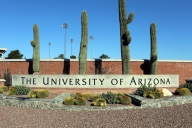You have /5 articles left.
Sign up for a free account or log in.

iStock
Do college rankings promote good college choices? What’s more important in choosing a college, prestige or fit? What factors contribute to a good college experience?
Those are among the questions raised in a new study by Challenge Success, a nonprofit affiliated with the Stanford Graduate School of Education. The report, titled “A ‘Fit’ Over Rankings: Why College Engagement Matters More Than Selectivity,” attempts to shed light on the relationship between attending a prestigious college and individual success and happiness.
The report doesn’t cover any new ground but is rather a synthesis of existing research on outcomes like student learning, happiness, job satisfaction and future earnings and how those outcomes are influenced by college rankings and selectivity. It attempts to answer three questions:
- What do college rankings really measure?
- What is the relationship between college selectivity and student outcomes?
- What is “fit,” and why does it matter?
It will probably surprise no one, not even Bob Morse at U.S. News & World Report, that the study concludes that college rankings are flawed, neither measuring institutional quality nor predicting student outcomes. It steers clear of the standard criticism that the only thing rankings fail to measure is the essence of the educational experience. That’s like ranking churches without any attention to spirituality. It also raised a more fundamental question about attempts to rank. Do we measure the things we value, or do we value things because we can measure them?
“A ‘Fit’ Over Rankings” saves its criticism of rankings for the arbitrary weight assigned to various metrics. Why are SAT scores 8.1 percent of U.S. News’s ranking methodology and average class size only 8 percent? Why count both graduation rate and projected graduation rate, and how does U.S. News decide what an institution’s graduation rate should be? Why is reputation among college administrators twice as valuable as reputation among guidance counselors (for the record, I choose not to complete the reputational survey) and why does U.S. News still use an outdated term like “guidance counselors”?
The report makes interesting points about a couple of common ranking metrics. Does alumni giving really reflect alumni satisfaction or a savvy development operation? Does alumni giving as a metric encourage colleges to admit students who are more likely to be prospective donors after graduation?
What does class size really tell you? The report offers an example of how that metric can be manipulated and misleading. A college with 200 students (assuming, for sake of argument, that each student takes one class), could offer 10 courses, nine with two students each and the other with the remaining 182. For ranking purposes that would result in an average class size of 20 and 90 percent of classes being small.
Is choosing a college more about prestige or fit? That leads to a related question -- does the value of college lie in where one goes, the name on the diploma (or window decal), or in the experience one has in college?
Prestige versus fit is the ultimate “suburban legend,” my term for a range of widely held beliefs about college and college admission. Suburban legends are what parents talk about on the sideline of soccer games, while checking out at the grocery store and at social gatherings. They are plausible, always happen to a friend of a friend (or a co-worker’s sister’s daughter’s boyfriend), and always present themselves as “I hear that Dartmouth …” They are most likely to be believed by smart people who would be skeptical in any arena other than college admission.
Prestige versus fit might be described as a clash of worldviews, to borrow a term from metaphysics. They are foundational, rooted in both fact and faith, and we tend to find evidence that supports what we believe or want to believe.
College rankings are rooted in the prestige worldview. That worldview asserts that colleges and universities can be compared using metrics and data points, and college choice should be objective. The problem is that ranking by its very nature lends an air of false precision (is No. 8 really significantly better than No. 23?). It is also the case that selectivity too often becomes a proxy for prestige. The harder a place is to get in, the better it must be. That leads colleges to play all kinds of admission games, from admitting high percentages of the freshman class early to judging demonstrated interest, all with the goal of maintaining selectivity, or at least the illusion of selectivity.
The fit worldview argues that college choice is subjective. What is right for you may not be what is right for me, and what makes a place right is ultimately the kind of experience you will have.
The new report comes down clearly on the side of fit, even as it acknowledges that there are varying definitions of fit. It cites research ranging from Matthew Mayhew’s review of 1,800 studies on the impact of college to the Gallup-Purdue survey of job satisfaction and well-being among college graduates to the Dale-Krueger studies on the impact of attending a selective college to argue that there is no correlation between selectivity and learning, success after college, or happiness and well-being. There are certainly studies that show some economic advantage to attending a prestigious college, especially for first-generation or underserved students, but the variance among graduates within any institution is greater than the variance from institution to institution.
Challenge Success’s definition of fit is engagement, both in class and out. Borrowing from the Gallup-Purdue studies, it identifies six college experiences that lead to engagement:
- Taking a course with a professor who make s learning exciting.
- Working with professors who care about students personally.
- Finding a mentor who encourages students to pursue personal goals.
- Working on a project across several semesters.
- Participating in an internship that applies classroom learning.
- Being active in extracurricular activities.
Sadly, relatively few college students have these experiences. According to the Gallup survey, only 3 percent experienced all six, with only 14 percent having the relational piece identified in the top three bullets and only 6 percent having the experiential component identified in the bottom three.
I like the conclusions in “A ‘Fit’ Over Rankings,” probably because the report confirms my worldview and biases. It would be nice to think that the new study will settle the prestige versus fit debate once and for all, but I have my doubts.
The cult of rankings and selectivity is too strong and embedded in our culture, to the degree that believers in the prestige worldview will respond to the report’s conclusions about fit by throwing a fit and asking, “If engagement is the key, isn’t engagement at an Ivy better than engagement at other institutions?”
I also wonder if “A ‘Fit’ Over Rankings: Why College Engagement Matters More Than Selectivity” would receive as much attention if the report came from Stetson rather than Stanford.








